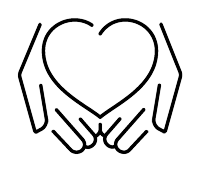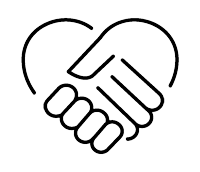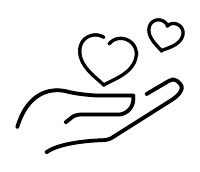
ROCK thru more challenges with more brainpower (Plus, 10 ways to tap into expertise)
ABUNDANT LIVING SERIES
by Lee Havenga | August 22, 2024
There’s something almost magical about a pair of jeans that fit just right. Not too tight, not too loose, hugging and flexing in all the right places. They’re the ones you reach for first and sometimes even out of the hamper to wear just one more time, the ones that make you feel good no matter what. So you can imagine my dismay when the buckle on my favorite jeans broke, leaving them unwearable. I know, it’s just a pair of jeans, but if you’ve ever had that one piece of clothing that feels like a second skin, you get it. They make life just a little bit easier. I couldn’t just toss them aside, so I headed to the craft store, hoping to find a replacement buckle.
After searching the aisles and coming up empty, I asked for help. Honestly, I didn’t expect much—maybe a half-hearted suggestion from a disinterested store clerk. But instead, I found someone who was just as eager as I was to solve the problem. We spent the next 20 minutes brainstorming different solutions together, and by the time I left, I had a plan and a handful of supplies, including a fix-it-all glue I had never heard of.
This experience reminded me how powerful it can be to collaborate with others to solve problems, even those that seem small or insignificant. According to Dawna Markova and Angie McArthur, authors of Collaborative Intelligence, collaboration is not just about pooling resources but about leveraging diverse perspectives to uncover solutions that we might not identify on our own. They emphasize that effective collaboration involves engaging with others’ expertise and insights, which can lead to innovative problem-solving strategies. This principle aligns with the idea that asking for help can open the door to new ideas and perspectives.
In this Abundant Living series article, we’ll explore how you can use the ROCK thru principles to harness the power of collaboration to tackle your challenges.
Sometimes, the best solution is just a conversation away.
RESPECT

Apply it
Asking for help isn’t a sign of weakness but a demonstration of strength. You’re valuable unconditionally, and your worth doesn’t diminish when you seek assistance. The store clerk and I were equals in our brainstorming session—no egos, just mutual Respect and a shared goal. Markova and McArthur discuss that respecting others’ contributions and recognizing their expertise is crucial for effective collaboration. When you respect yourself and others, collaboration becomes a natural and rewarding process.
What challenges are you facing that could benefit from another perspective?
How can you approach someone with Respect and openness to collaborate on a solution?
OWNERSHIP

Apply it
Take Ownership of your resistance to asking for help. Often, it stems from emotions like fear or pride. Ask yourself: What am I really afraid of? What’s the worst that could happen if I ask for help? What’s the best that could happen? Accept these truths without excuses, and then take action to overcome them. The next time you face a challenge, pause, breathe, and reach out for support. Markova and McArthur explain that owning your challenges and actively seeking input from others is key to successful collaborative efforts.
Is there a problem you’re trying to solve on your own? How might asking for help change your approach and the outcome?
Ten to Tap into Expertise
- Be Direct: “I could use your help with something. Do you have a moment to discuss it?”
- Share Your Goal: “I’m working on [project/task], and I’d love your input to make it better. Could you help me with this?”
- Acknowledge Their Expertise: “You’re really knowledgeable about [topic]. Could you give me some advice on how to approach this?”
- Express Vulnerability: “I’m struggling with [problem], and I’m not sure how to move forward. Could you help me figure it out?”
- Frame it as a Collaboration: “I think we could come up with a great solution together. Can we brainstorm some ideas?”
- Ask for Feedback: “I’d appreciate your feedback on this. Could you take a look and let me know what you think?”
- Be Specific: “I need help with [specific task]. Would you be able to assist me with that?”
- Leverage Their Strengths: “You’re great at [skill]. Could you show me how you do it?”
- Seek Guidance: “I’m navigating [situation] and could really use your perspective. Can we talk about it?”
- Request Support: “I’m feeling overwhelmed with [issue]. Could you help me lighten the load by [specific way they can assist]?”
CONNECTION

Apply it
Asking for help fosters a genuine Connection with others. It allows you to connect honestly with yourself, acknowledging that you don’t have all the answers and that others have valuable insights. This creates a deeper, more honest relationship with yourself and those around you. By inviting others to share their skills or knowledge, you’re also giving them the opportunity to contribute and feel fulfilled. Markova and McArthur highlight that strong connections built through collaboration can lead to more creative and effective problem-solving outcomes.
Who in your life has a skill or perspective that could help you with a current challenge? How might reaching out to them deepen your Connection?
KINDNESS

Apply it
Asking for help is an act of Kindness—to yourself and to others. It’s kind to acknowledge your limitations and give yourself the support you need. It’s also kind to give others the chance to help, recognizing their strengths and talents. When you ask someone for help, you’re conveying, “I see you and your abilities, and I value what you can offer.” This not only solves your problem but also strengthens the bond between you and the helper. Markova and McArthur note that mutual support enhances the collaborative process and leads to better outcomes.
What act of Kindness can you extend to yourself or others by asking for help? How might this Kindness ripple out into your relationships?
Collaboration doesn’t just solve problems—it strengthens connections, demonstrates Respect, and fosters Kindness. So, next time you’re facing a challenge, big or small, consider asking for help. You might be surprised at the solutions you discover and the bonds you strengthen along the way. And yes, I’m happy to report that the clerk’s glue suggestion worked like a charm—my favorite jeans are back in action!
XO ~ Lee
Source:
Markova, Dawna and McArthur, Angie. Collaborative Intelligence: Thinking with People Who Think Differently. Random House, 2015.
Get more like this, right to your inbox
Want to inspire a friend?
Forward this on so they can
ROCK thru too!


